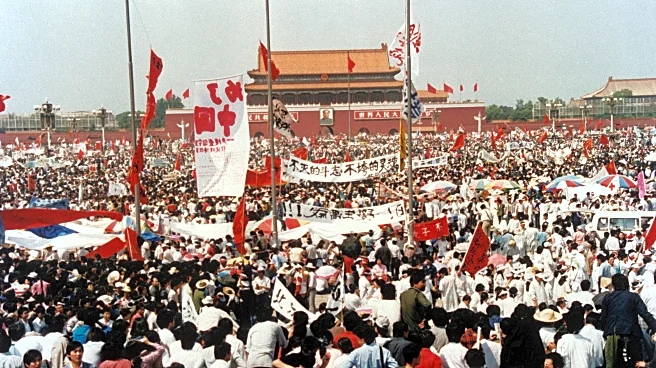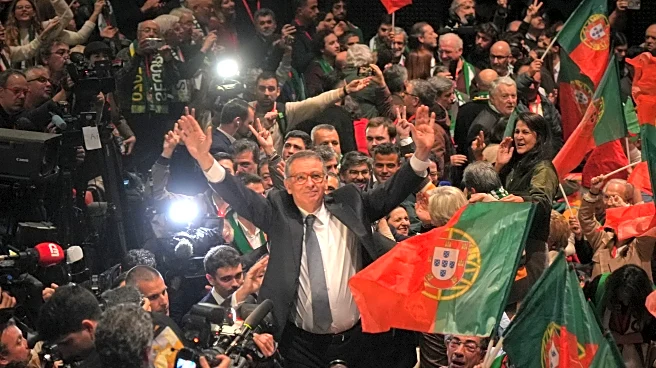What is the story about?
What's Happening?
The United States has postponed the next round of bilateral trade negotiations with India, originally scheduled for August 25-29. This decision follows Prime Minister Narendra Modi's firm stance against U.S. demands for increased market access in India's agriculture and dairy sectors. The Trump administration seeks reduced tariffs on products such as corn, soybeans, apples, almonds, and ethanol, along with greater access for U.S. dairy products. However, Modi has publicly opposed any agreement that could negatively impact Indian farmers and dairy producers. The delay in talks comes after the U.S. imposed a 25% tariff on Indian exports, with an additional 25% penalty set to take effect due to India's purchase of Russian crude oil and defense equipment.
Why It's Important?
The postponement of trade talks highlights ongoing tensions between the U.S. and India, particularly in sectors critical to India's economy. The U.S. tariffs on Indian goods could significantly impact Indian exporters, increasing their tax burden by 50%. This situation underscores the challenges in balancing trade relations with national interests, especially in politically sensitive areas like agriculture. The outcome of these negotiations could affect bilateral trade, which has seen significant growth, with India's exports to the U.S. rising by 21.64% in recent months. The U.S. remains India's largest trading partner, making the resolution of these issues crucial for both nations.
What's Next?
The rescheduling of trade talks suggests ongoing negotiations and potential adjustments in U.S. demands. Stakeholders in both countries will likely continue discussions to find a mutually beneficial agreement. The Indian government may seek alternative strategies to mitigate the impact of U.S. tariffs on its exporters. Additionally, the broader geopolitical context, including India's relations with other countries like China, may influence future trade policies and negotiations.
Beyond the Headlines
The trade dispute raises questions about the ethical implications of imposing tariffs as a political tool, especially when they affect vulnerable sectors like agriculture. It also highlights the cultural significance of protecting domestic industries that are integral to national identity and livelihood. Long-term shifts in trade policies could redefine economic alliances and influence global trade dynamics.















